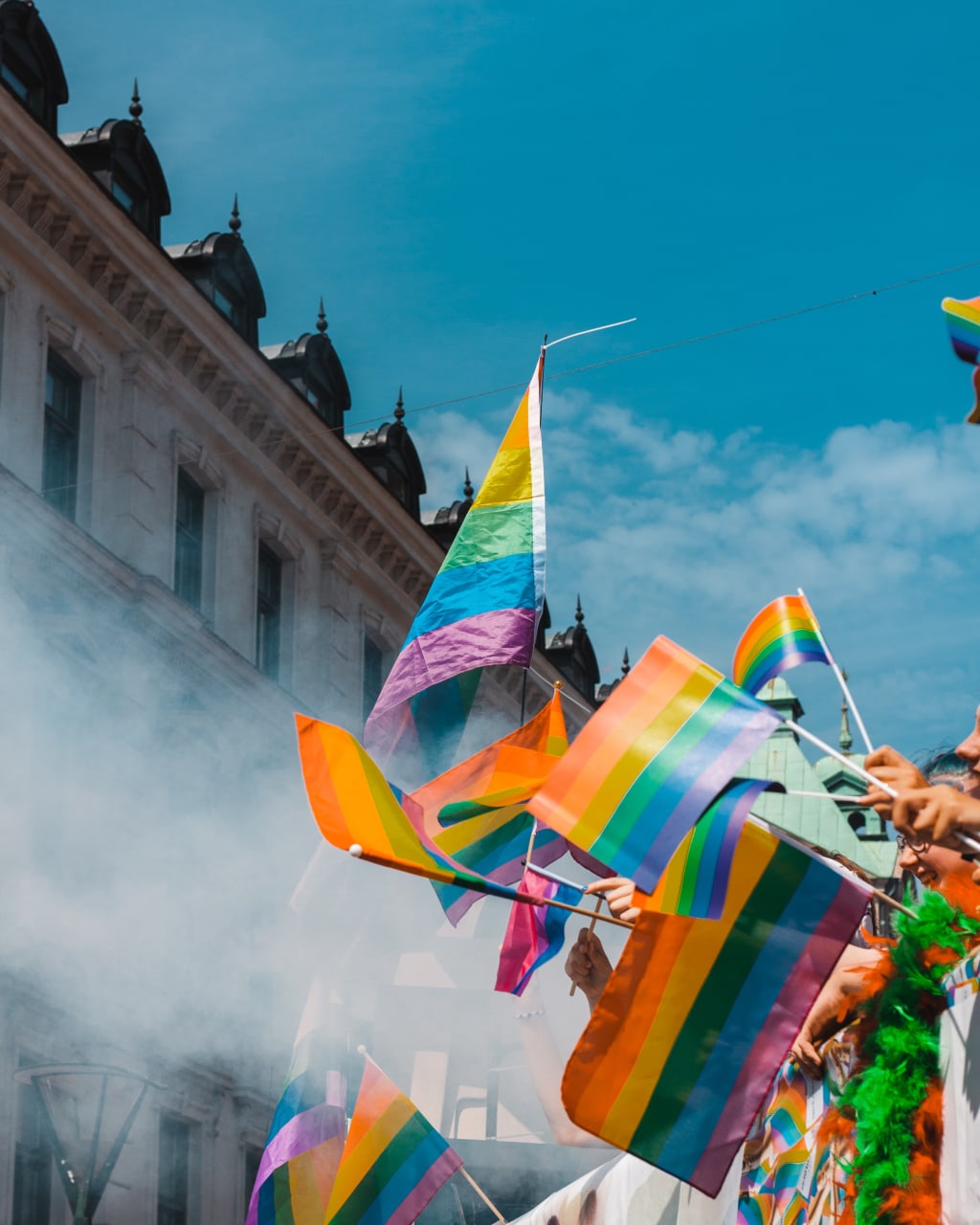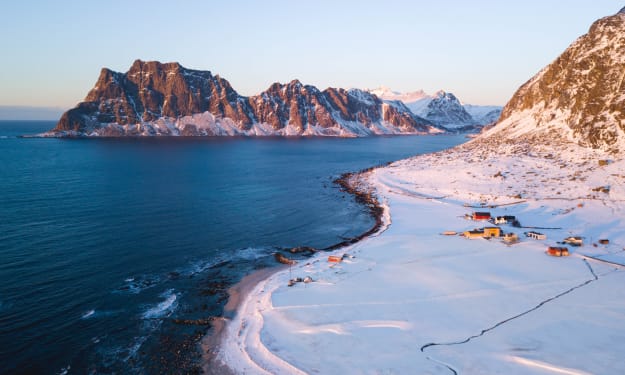
There are still over 70 countries in the world where being LGBTQ+ is illegal or criminalized, and yet they hold some of the highest tourist attractions out there. This seems contradictory, but it’s not. People often travel to these places for the luxury lifestyle that they can live there – regardless of what the law says about them. In this post, we’ll explore why people continue to visit these countries despite their legal status towards LGBTQ+ people.
The first country that we’ll look at is The United Arab Emirates. In the UAE, being gay is a criminal offense, and those who are caught engaging in homosexual activity can be imprisoned for up to 14 years. Despite this, the UAE remains a popular destination for LGBTQ+ tourists. This is likely because it’s one of the most influential countries in the world, with a high standard of living. The UAE also has a thriving nightlife scene, and many LGBTQ+ tourists visit for the parties and clubs that are available there.
We also have Brunei. In Brunei, being gay is punishable by death. Despite this, Brunei remains a popular destination for LGBTQ+ tourists. This is likely because of its luxurious lifestyle and pristine beaches. I would not recommend visiting Brunei if you’re looking to experience the local LGBTQ+ culture, but it’s still a great place to visit if you’re looking for a relaxing beach holiday.
Malaysia is a fairly tolerant country towards LGBTQ+ people, but being gay is still punishable by up to 20 years in prison. Despite this, Malaysia remains a popular destination for LGBTQ+ tourists. This is likely because Malaysian culture is incredibly diverse, and the country has a rich history.
The final country we are going to look at in Asia is Indonesia. In Indonesia, being gay is punishable by up to five years in prison. Despite this, Indonesia remains a popular destination for LGBTQ+ tourists. This is likely because the Indonesian nightlife scene is also one of the most vibrant in Southeast Asia.
I would also like to bring attention to Qatar, for those who don’t know Qatar is where the football world cup is going to take place. Over the past couple of years players have show solidary for those who have face hardships for their race, and they have even showed support for pride month, but in my opinion this is all hypocritical. How can people who truly support LGBT+ rights travel to a country, make millions for that country, especially when most of them already make enough money and do not need to support this country, cough cough David Beckham.
Other countries in Asia which have anti-gay laws are as followed Afghanistan, Bangladesh, Iran, Iraq, Kuwait, Lebanon (law ruled invalid in one court in 2014 and disqualified for use against same-sex intimacy in another court in February 2017), Maldives, Myanmar, Oman, Pakistan, Palestine (Gaza Strip only), Qatar, Saudi Arabia, Singapore, Sri Lanka, Syria, Turkmenistan, Uzbekistan, and Yemen
Moving on to the country of Nigeria, we see a stark contrast. Nigeria is one of the most anti-gay countries in the world, and being gay is punishable by up to 14 years in prison. Despite this, Nigeria remains a popular destination for LGBTQ+ tourists. This is likely because Nigerian culture is incredibly diverse, with many different tribes and ethnic groups. LGBTQ+ people can often find a place to express themselves in Nigeria, and the country’s nightlife scene is thriving. Other popular destinations in Nigeria are the city of Lagos and the ancient kingdom of Benin.
Another country would be Uganda. Uganda is also an incredibly anti-gay country, and being gay is punishable by up to life in prison. However, like Nigeria, Uganda remains a popular destination for LGBTQ+ tourists. This is likely because of its diverse culture and rich history.
Next, we have Lebanon. Lebanon is a fairly tolerant country towards LGBTQ+ people, but being gay is still punishable by up to one year in prison. Despite this, Lebanon remains a popular destination for LGBTQ+ tourists.
There is also Egypt. In Egypt, being gay is punishable by up to three years in prison. Despite this, Egypt remains a popular destination for LGBTQ+ tourists. Thousands of people still visit the Pyramids every year despite several backward laws on the books.
I have visited Tunisia, and now say I will not return while their laws are as so, but I understand the attraction to the country. Tunisia is a tolerant country towards LGBTQ+ people, but being gay is punishable by up to three years in prison. Despite this, Tunisia remains a popular destination for LGBTQ+ tourists. I would recommend visiting the popular tourist attraction of Carthage while in Tunisia.
Other countries in Africa that have laws against the LGBTQ+ community are Algeria, Burundi, Cameroon, Chad, Comoros, Eritrea, Eswatini, Ethiopia, Gambia, Ghana, Guinea, Kenya, Liberia, Libya, Malawi, Mauritania, Mauritius, Morocco, Namibia, Senegal, Sierra Leone, Somalia, South Sudan, Sudan, Tanzania, Togo, Zambia, and Zimbabwe.
Another country where being gay is illegal in Jamaica. However, Jamaica is also a popular destination for LGBTQ+ tourists. This is likely because Jamaica has a very relaxed and tolerant attitude towards gay people, and it’s one of the most affordable Caribbean destinations. In Jamaica, being gay isn’t technically illegal, but there are still many anti-gay laws on the books. These laws are rarely enforced, however, and Jamaica remains a welcoming place for LGBTQ+ tourists. Things you can see in Jamaica are the Blue Mountains, Dunn’s River Falls, and a Bob Marley Museum.
Other countries are Antigua & Barbuda, Barbados, Dominica (No enforcement of anti-gay law“), Grenada, Guyana, St Kitts, St Lucia, and St Vincent & the Grenadines
Quote from 76 crimes “In the US, anti-sodomy laws were ruled unconstitutional by the U.S. Supreme Court in 2003, but they are still on the books in 13 states: Alabama, Florida, Idaho, Kansas, Louisiana, Michigan, Mississippi, North Carolina, Oklahoma, South Carolina, Texas, Utah and Virginia.”
Oceania also have a few countries which are Cook Islands, Kirbati, Papua New Guinea, Samoa, Solomon Islands, Tonga and Tuvalu
While Europe does not have any countries where being gay is illegal I think it is important to mention Russia, Lithuania, and Belarus which have either adopted anti-gay propaganda laws or have discussed such laws in the last few years. These laws make it very difficult for LGBTQ+ people to be open about their sexuality, and they have led to a rise in homophobic violence.
So why do people continue to visit countries where being LGBTQ+ is illegal? In most cases, it’s because they’re not affected by these laws. While it’s important to be aware of the legal status of LGBTQ+ people in a destination, it’s important to remember that these laws are not always enforced. In countries like the UAE and Jamaica, the LGBTQ+ community is largely tolerated, and people can live relatively normal lives without fear of persecution.
That being said, there are some risks associated with traveling to a country where being gay is illegal. It’s always important to be aware of your surroundings, and it’s best to avoid public displays of affection. It’s also important to keep in mind that the laws in these countries can change at any time, so it’s always important to do your research before traveling.
Despite the legal status of LGBTQ+ people in these countries, tourism continues to thrive. This is likely because people are more interested in the lifestyle that these destinations offer than in the law itself. However, we must remember that it is important to call out the acts of laws asking for punishment based on sexual orientation and while some of these countries don’t care about if you are into women or men, they are still laws and we should be living in a society where every country should be repelling these sorts of laws, and we need to stand aligned with the LGBTQ+ community.
So what do you think about the countries mentioned in this post? Are they worth visiting, despite the legal status of LGBTQ+ people? Or do you think we should shame those who choose to vacation in countries which do not support people like me?
About the Creator
Rosalyn
A twenty something year old. My favourite things are travelling, photography and drinking cocktails. When not studying or working, you’ll find me exploring new places or dreaming up stories that will never come true.
https://lnk.bio/x7mT






Comments
There are no comments for this story
Be the first to respond and start the conversation.